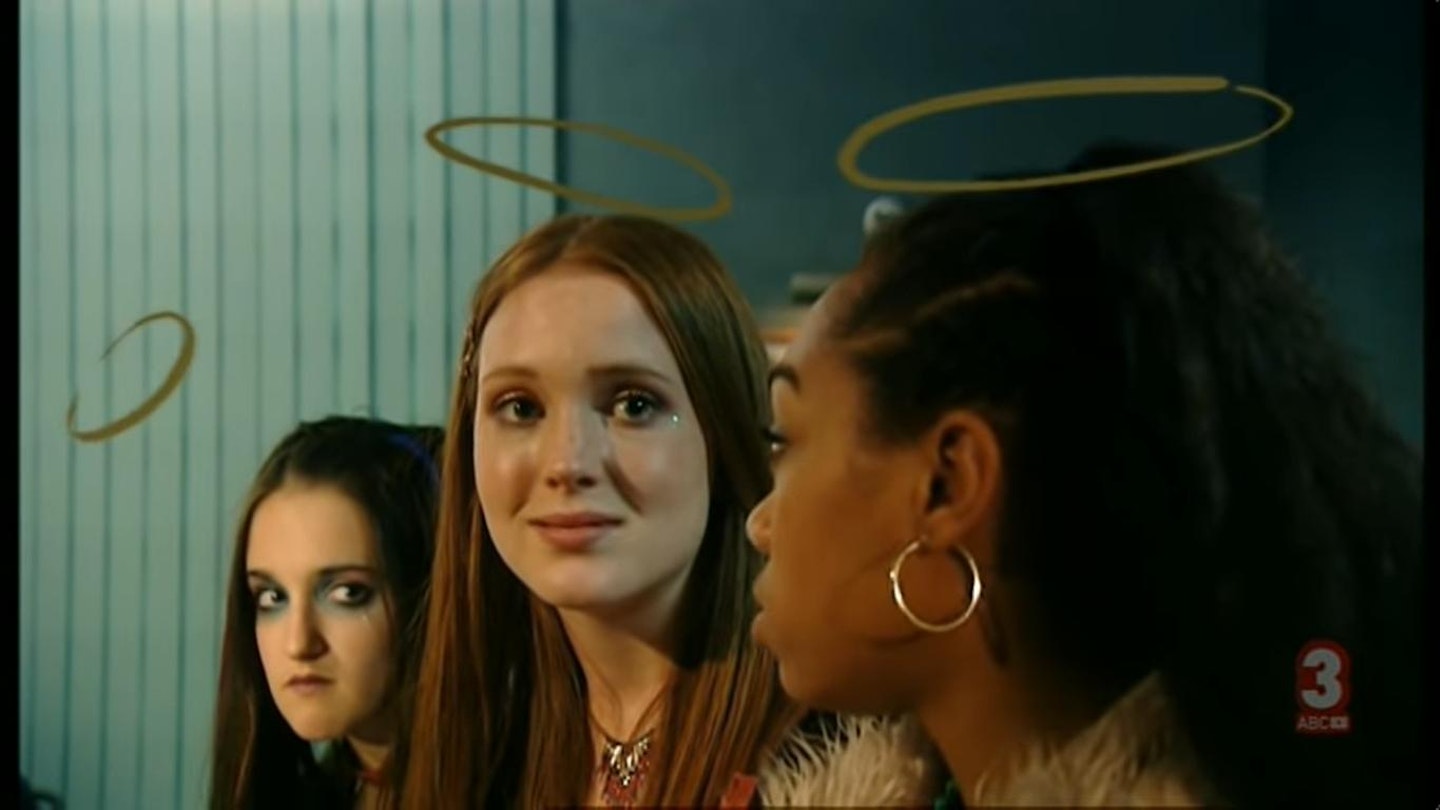There is a reason that Jacqueline Wilson, in all her bejewelled hands and cropped grey hair glory, is a longstanding fave for my generation of women. The children’s and young adult has written over 100 books and made over 35 million sales over the years and now, for the first time in her long and beloved career, she is picking up the pen to write fiction for grown ups.
The new book will pick up on the life of the protagonist Ellie Allard from the Girls series of stories that Wilson published between 1997 and 2002. Think Again follows a forty year old Ellie in a life that isn’t quite the dream she thought it would be as a teenager. Although she loves her gorgeous daughter, her small flat and her pet cat, as well as her lifelong best mates Magda and Nadine, Ellie feels in a rut and is using her landmark fortieth birthday to break free of it.
The original novels that the new story is based on, Girls in Love, Girls Under Pressure, Girls Out Late, and Girls in Tears were a departure in style for Wilson at the time as she turned her focus from children’s stories into the world of young adult literature, following her dedicated audience of youngsters into exploring adolescence. The Girls series has always held a special place in my heart as I got to continue reading the author I loved in stories that were developing alongside my own emotions, body and issues - the latter often directly linked to the former.
What I loved about the Girls quartet, and the work of Jacqueline Wilson in general, was her absolute absence in mollycoddling her readership. Her children’s books - the most famous of which, The Story of Tracy Beaker, that was also turned into a seminal CBBC TV program - had topics that ranged from the state of the foster care system to being haunted by an evil dead best friend. Vividly, I remember finding myself scandalised as I flipped through the pages of Dustbin Baby, as the tale detailed the lead character being born into a bin, being adopted by a woman who commits suicide, the protagonist causing grevious bodily harm to a peer and then getting involved in a series of burglaries.
When researching the Dustbin Baby plot to see if I was remembering it correctly, I was left feeling a little jarred from the storyline. I immediately rang my mother to ask her why she allowed me to read such fiction. On the phone, my mam laughs and says it is as we speak that she is finding out that the colourful novels of my youth were so hard hitting. Regardless of her lack of research into the writer’s work - her assumption being that popular children’s books are obviously safe for kids to read - my mam confirms my own belief about the topics at hand. If the point is to educate young uns on all different walks of life and to inspire empathy for others, then have at it.
Yet the idea of a story like The Illustrated Mum - in which the narrator, a ten year old named Dolphin, has to look after her bipolar single mother and younger sister until her mum gets hospitalised for covering herself in toxic paint and the kids end up in foster care - being published and lauded today for a young audience sounds impossible. In the advent of active parenting, gentle parenting and a focus on child raising that has a bit more care put into making sure your kids aren’t consuming anything inappropriate - would storylines aimed at kids about domestic violence, grooming and childhood abandonment manage to avoid the ire of mummy bloggers and booktok?
Across some corners of the web, Wilson has already been scrutinised for her dedication to detailing the darker parts of life in her pages - from titling her work traumatising to being accused of promoting pedophilia, the 78 year old author has gotten a fair share of flack for representing all sides of life in her novels. But her popularity overrides all and the reason feels glaringly obvious: Though the stories are fictional, they aren’t impossible flights of fancy. The focus of the books are ones that some kids will relate to and while some kids won’t until much later in life, all children benefit from being aware of the possibilities of each other’s circumstances. By introducing the youth to the fact that life isn’t all rainbows and gumdrops early on, Wilson has not just shown us the breadth of human experience, but taught us to have more sensitivity and understanding to each other’s struggles.
With all of Wilson’s incredible work in showing the stark realities of growing up to generation after generation of children and teens, I’m thrilled to find out how she tackles the trials and tribulations of being grown up in Think Again. Hopefully, it will be as equal parts harrowing and uplifting as her usual.
